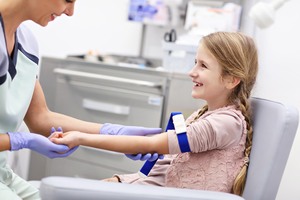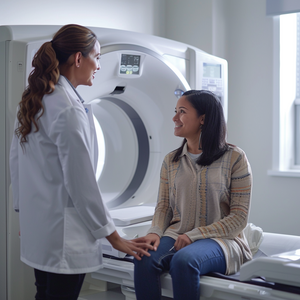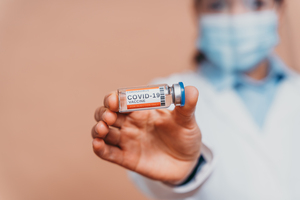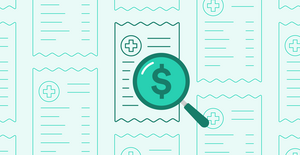Book an STD Test in State College, PA
Own a clinic? Add your location.
Help patients book appointments with you on Solv. It's free!
4 instant-book locations
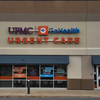
UPMC-GoHealth Urgent Care, State College
UPMC-GoHealth Urgent Care

Quest Diagnostics
Quest Diagnostics
Self-pay pricing
Clear self-pay prices
No more surprise bills. Solv is committed to making getting healthcare as easy as buying groceries at the store, including knowing the price of care upfront.

Self-pay pricing
Clear self-pay prices
No more surprise bills. Solv is committed to making getting healthcare as easy as buying groceries at the store, including knowing the price of care upfront.

Labcorp
Labcorp
Self-pay pricing
Clear self-pay prices
No more surprise bills. Solv is committed to making getting healthcare as easy as buying groceries at the store, including knowing the price of care upfront.
Mount Nittany Medical Center, Lab Services
Mount Nittany Medical Center

Geisinger Careworks Walk-in Clinic
Geisinger Careworks Walk-in Clinic
Mount Nittany Health Lab Services, Park Ave
Mount Nittany Health Lab Services
Mount Nittany Health Lab Services, Bellefonte
Mount Nittany Health Lab Services
Mount Nittany Health Lab Services, Penns Valley
Mount Nittany Health Lab Services
Mount Nittany Health Lab Services, Mifflin County
Mount Nittany Health Lab Services
Mount Nittany Health Lab Services, Philipsburg
Mount Nittany Health Lab Services
Geisinger Careworks After Hours
Geisinger Careworks After Hours
Own a clinic? Add your location.
Help patients book appointments with you on Solv. It's free!
Overview of STD Testing in State College
Who should get tested for STDs?
Anyone who is sexually active should consider getting tested for STDs, especially those with multiple sexual partners or who engage in unprotected sex. According to the CDC, people between the ages of 15 and 24 account for half of the 20 million new sexually transmitted infections that occur in the United States each year. However, it's important to note that STDs do not discriminate by age, and anyone who is sexually active is at risk.
Importance of getting tested
Getting tested for STDs is crucial for several reasons. Firstly, many STDs can be asymptomatic, meaning you may not know you have one. Untreated STDs can lead to serious health complications, including infertility, cancer, and increased risk of HIV. Secondly, knowing your STD status can help prevent the spread of these diseases to your sexual partners. Lastly, most STDs are treatable, and early diagnosis can lead to more effective treatment.
STD testing options in State College, PA:
Urgent care and walk-in clinics
Urgent care and walk-in clinics are a convenient option for STD testing in State College, PA. These facilities often offer same-day appointments, which can be booked through Solv’s website and mobile app. Geisinger ConvenientCare in Bellefonte, PA and MedExpress Urgent Care in State College, PA are two nearby options with ratings of 2.38 and 1.96, respectively.
Primary care providers
Primary care providers are another option for STD testing. They can provide comprehensive care, including STD testing, treatment, and follow-up care. However, appointments may not be as readily available as with urgent care centers.
Free STD testing and community health centers
Free STD testing is available at community health centers in and around State College, PA. These centers often provide services regardless of insurance status or ability to pay. However, availability and wait times can vary.
At-home testing
At-home STD testing is another option. These tests can be ordered online, done in the privacy of your own home, and then mailed back to the lab for analysis. Results are usually available within a few days.
Prevalence of STDs in State College
State College, located in Centre County, PA, has seen a steady increase in STD rates over the past few years, mirroring national trends. According to the CDC, the most common STDs in the area are chlamydia, gonorrhea, and syphilis. Compared to nearby counties such as Fayette County, Sussex County, and Morris County, Centre County has a higher rate of STDs.
Risk factors related to STDs in State College
Several risk factors contribute to the prevalence of STDs in State College. These include a high population of young adults due to the presence of Pennsylvania State University, lack of comprehensive sex education, and social stigma associated with STD testing. It's important for residents to understand these risks and take proactive steps to protect their sexual health, such as regular STD testing.
Solv has strict sourcing guidelines and relies on peer-reviewed studies, academic research institutions, and medical associations. We avoid using tertiary references.
STD Testing FAQs
Where should I get an STD test in State College?
In a doctor's office, a health clinic, or an urgent care center, you can get an STD test. If you're experiencing symptoms, it's best to visit a doctor's office, where they can also treat you or issue you a prescription. While some State College clinics and urgent care centers allow walk-in appointments, it's advisable to make an appointment ahead of time to prevent excessive waits.
How long does it take to get STD test results?
Various testing are required for various STDs. Depending on the type of STD test you took, you may receive your results in two to ten days. Some outcomes may be immediately available. Your doctor may be able to diagnose an STD through a physical examination. In some cases, your doctor's office may only contact you if your test results are positive.
How much does an STD test cost in State College?
The cost of STD testing is governed by several factors, including where you are tested, the type of test you need, and if you have health insurance. Some State College clinics may offer free testing or testing on a sliding scale based on your income. Because of the cost, don't put off obtaining an STD test. With your doctor's office, discuss the cost and payment choices. Delaying STD treatment may have catastrophic implications.
Does insurance cover STD testing in State College?
The cost of STD testing is governed by a number of factors, including the location of the test, the type of test required, and whether or not you have health insurance. Some clinics may provide free or sliding-scale testing, depending on your income. Don't let the expense of an STD test deter you from getting one. With your doctor's office, discuss the price and payment choices. Delaying STD treatment could have catastrophic ramifications.
How do they test for STDs in State College?
There are around 20 different forms of STDs, each with its own set of diagnostic tests. No single test exists that can detect all types of STDs. Your doctor can help you figure out which tests you'll need. In STD testing, a blood sample or a urine sample may be used. Your doctor may also take a swab from the inside of your cheek, your vaginal area, or another potentially infected place.
What STDs can be detected by a blood test?
Blood tests are used to diagnose hepatitis B, hepatitis C, herpes, HIV, and syphilis. In a laboratory, a technician examines a blood sample for antibodies that the body has produced in reaction to disease. The virus's DNA can also be detected by several blood tests. Remember that if you've recently been exposed to an STD and your body hasn't yet produced antibodies, you could test negative even if you have the disease.
Can I get a same-day appointment for STD testing in State College?
Many State College, PA urgent care providers offer same-day and next-day appointments, which you may book through Solv. To make healthcare more accessible to everyone, we collaborate with thousands of top-rated local providers. Our physician partners understand that waiting days, if not weeks, for an appointment isn't always the best option, and they share our commitment to simple, accessible health care.
How can I book an STD test on Solv?
To find a healthcare practitioner in your area, simply enter your location and search for "STD test" on our website. A list of providers and available appointments can be found on the following page. Choose the most convenient time and location for you. Make it clear that you've come for STD testing.
How long does an STD test take in State College?
If you have a specific STD, inform your doctor so that the necessary test can be scheduled. Otherwise, they'll help you figure out which tests you'll need. The nurse or doctor simply needs a few minutes to get a blood sample, a urine sample, or a swab from the probable infection site.
Can I test myself for STDs at home?
Although there are several STD home tests available, not all of them are accurate. The accuracy of any STD test is determined by the quality of the sample taken. For home STD kits, a blood sample, a urine sample, or both are frequently required. Because doctors and nurses have more experience collecting samples, traditional in-office STD testing is the most accurate.
Related Searches
Ear Wax Removal in State College
Sports Physicals in State College
A1C Test in State College
Allergy Testing in State College
CMP Test in State College
Diabetes Test in State College
Diagnostic Test in State College
Glucose Test in State College
H Pylori Test in State College
Hepatitis test in State College
Lab Tests in State College
Mono Test in State College
Pregnancy Test in State College
Pulmonary Function Test in State College
RSV Test in State College
STD Testing in State College
Strep Test in State College
TB Test in State College
Thyroid Test in State College
Vitamin D Test in State College
Aetna Urgent Care
Blue Cross Blue Shield Urgent Care
Cigna Urgent Care
COVID-19
Flu
United Health Urgent Care
» All services in State CollegeFind STD testing
Nearby cities
Everyday Healthcare, Simplified
Expert advice to help you live your best life

